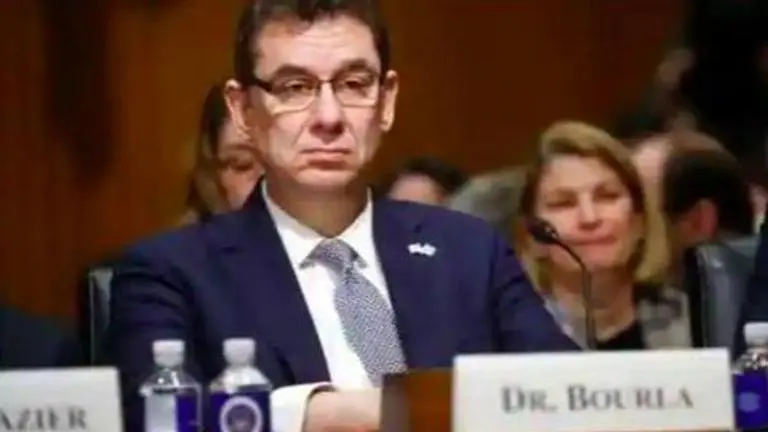Updated 21 November 2020 at 12:19 IST
Pfizer CEO says COVID-19 vaccine in 'FDA hands'
Earlier this week, Pfizer and its German partner BioNTech announced that its vaccine appears 95% effective at preventing mild to severe COVID-19 disease in a large, ongoing study.
- World News
- 2 min read

The CEO of Pfizer speaks after asking U.S. regulators to allow emergency use of its vaccine in the U.S. This step will start the clock on a process that could bring limited first shots as early as next month and eventually an end to the pandemic -- but not until after a long, hard winter."It is with great pride and joy and even a little relief, but I can say that our request for emergency use authorization for our covid-19 vaccine is now in the FDA hands," said Albert Bourla, CEO of Pfizer.
Earlier this week, Pfizer and its German partner BioNTech announced that its vaccine appears 95% effective at preventing mild to severe COVID-19 disease in a large, ongoing study. The companies said that protection plus a good safety record means the vaccine should qualify for emergency use authorization, something the Food and Drug Administration can grant before the final testing is fully complete. With the coronavirus surging around the U.S. and the world, the pressure is on for regulators to make a speedy decision. Bourla also said they are working in other parts of the world.
"The journey is not yet complete. In addition to today's submissions to the FDA, we have already initiated rolling submissions in Australia, Canada, Europe, Japan and the UK, and we plan to submit immediately to other regulatory authorities around the world," he said.
The FDA and its independent advisers are expected to debate in the coming weeks if the shots are ready. If so, still another government group will have to decide how the initial limited supplies are rationed out to anxiously awaiting Americans."Based on current projections, we expect to produce globally up to 50 million doses in 2020 and up to one point three billion doses by the end of 2021," said Bourla.Recipients will need two doses, three weeks apart.
Advertisement
(Image Credit: AP)
This story has not been edited by www.republicworld.com and is auto-generated from a syndicated feed.
Advertisement
Published By : Associated Press Television News
Published On: 21 November 2020 at 12:19 IST
